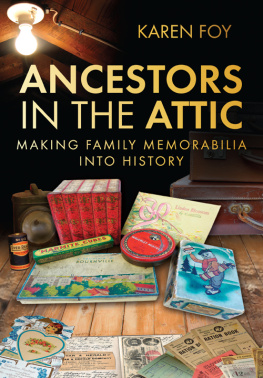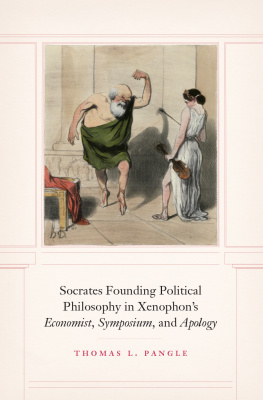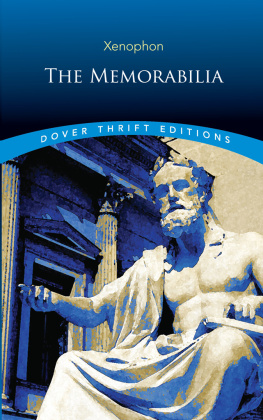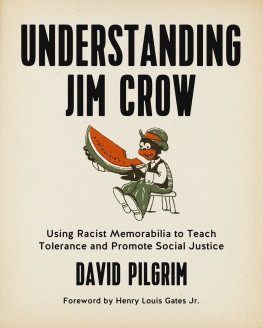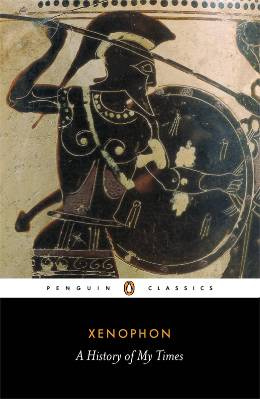Memorabilia [trans. Amy L. Bonnette] - Xenophon Memorabilia
Here you can read online Memorabilia [trans. Amy L. Bonnette] - Xenophon Memorabilia full text of the book (entire story) in english for free. Download pdf and epub, get meaning, cover and reviews about this ebook. year: 2014, publisher: CornellUP, genre: Romance novel. Description of the work, (preface) as well as reviews are available. Best literature library LitArk.com created for fans of good reading and offers a wide selection of genres:
Romance novel
Science fiction
Adventure
Detective
Science
History
Home and family
Prose
Art
Politics
Computer
Non-fiction
Religion
Business
Children
Humor
Choose a favorite category and find really read worthwhile books. Enjoy immersion in the world of imagination, feel the emotions of the characters or learn something new for yourself, make an fascinating discovery.
- Book:Xenophon Memorabilia
- Author:
- Publisher:CornellUP
- Genre:
- Year:2014
- Rating:4 / 5
- Favourites:Add to favourites
- Your mark:
- 80
- 1
- 2
- 3
- 4
- 5
Xenophon Memorabilia: summary, description and annotation
We offer to read an annotation, description, summary or preface (depends on what the author of the book "Xenophon Memorabilia" wrote himself). If you haven't found the necessary information about the book — write in the comments, we will try to find it.
Memorabilia [trans. Amy L. Bonnette]: author's other books
Who wrote Xenophon Memorabilia? Find out the surname, the name of the author of the book and a list of all author's works by series.
Xenophon Memorabilia — read online for free the complete book (whole text) full work
Below is the text of the book, divided by pages. System saving the place of the last page read, allows you to conveniently read the book "Xenophon Memorabilia" online for free, without having to search again every time where you left off. Put a bookmark, and you can go to the page where you finished reading at any time.
Font size:
Interval:
Bookmark:

Xenophon Memorabilia
Translated and
Annotated by
AMY L. BONNETTE

WITH AN INTRODUCTION BY
Christopher Bruell
CORNELL UNIVERSITY PRESS
ITHACA AND LONDON
Xenophon and His Socrates
Christopher Bruell
The following remarks are intended to lend support to the view that Xenophons account of Socrates deserves more respectful attention from those interested in Socrates than it often receives today. The demonstration of such a proposition is too great a task in this context. But I will try to create a predisposition in its favor (or on behalf of open-minded consideration of it) in two ways: first, by considering in a very general way what might be responsible for the current neglect of Xenophons account; and, then, by giving a brief summary of the contents of the Memorabilia, the longest of Xenophons four Socratic writings and the one to which this volume is devoted.
1. Far more obviously than Plato, Xenophon calls attention in his writings to his own relationship with Socrates. He claims frequently, Plato only once, to have been present at the Socratic conversations he reports. He often comments, in his own name, on Socrates words and deeds and on his life as a whole, something Plato never does; and he sometimes talks of the impression they made on him in particular. In accord with this, he calls his longest Socratic work Memorabilia, that is, Recollections, his recollections of Socrates; there is no parallel to this in the Platonic dialogues. One might add that whereas the dialogues, with the possible exception of the Laws (and the Epinomis), are devoted entirely to SocratesPlato himself being mentioned only three times, almost in passingXenophons works include not only the Education of Cyrus, devoted to the founder of the Persian empire, but also the Anabasis of Cyrus, whose real hero, the rescuer of almost ten thousand Greeks from extreme peril in the heart of the Persian empire, is Xenophon himself.
All of this would seem to justify an expectation on our part of finding in Xenophons works an account of his association with Socrates. But this expectation, if not entirely disappointed, is fulfilled in a surprising way. Xenophon recounts only two episodes in what must have been a complex friendship of some duration. The first was a conversation that took place in the presence of Critos son, Critobulus, a lazy, fun-loving, and spendthrift youth, whom Socrates, despite or perhaps in part because of these qualities, liked to spend time with:
Tell me, Xenophon, he said, didnt you hold Critobulus to be one of the moderate rather than the rash human beings, and one of those with forethought rather than senseless and reckless?
Certainly, said Xenophon.
Well, hold now that he is hotheaded and heedless in the extreme. He would even make somersaults into daggers and leap into fire.
And what did you see him doing, said Xenophon, that you have formed such judgments about him?
Did he not dare to kiss the son of Alcibiades, who is most fair and in his bloom? he said.
But if that is the reckless deed, said Xenophon, in my opinion, I, too, would endure this risk.
You wretch! Socrates said. And what do you think you would suffer after kissing someone beautiful? Would you not immediately be a slave rather than free, spend a lot for harmful pleasures, be in great want of leisure for attending to anything noble and good, and be compelled to take seriously what even a madman would not take seriously?
Heracles! said Xenophon. What a terrible power you ascribe to a kiss.
And do you wonder at this? said Socrates. Dont you know that poisonous spiders not even half an obol in size crush human beings with pain and drive them from their senses merely by touching them with their mouths?
Yes, by Zeus! said Xenophon. For spiders inject something through their sting.
You fool! said Socrates. Do you think that when those who are beautiful kiss they dont inject anything, just because you dont see it? Dont you know that this beast that they call beautiful and in bloom is so much more terrible than spiders that, while spiders inject something when they touch, it (even when it does not touch, but if one just looks at it) injects even from quite far away something of the sort to drive one mad?... But I counsel you, Xenophon, whenever you see someone beautiful, to flee without looking back.
Xenophon often comments favorably on the effectiveness of Socratic exhortations. For some reason, he refrained from doing so in this case.
The second episode is recounted not in the Socratic writings proper, but in the Anabasis. Xenophon had received a letter from a friend inviting him to accompany the friend on an expedition being organized by Cyrus, the younger brother of the then Persian king. Xenophon took the letter to Socrates and consulted with him about the trip. Socrates was worried that association with Cyrus might get Xenophon into trouble with Athens, since Cyrus was thought to have given enthusiastic assistance to Sparta in its recent war with Athens. So Socrates advised Xenophon to go to Delphi to consult with the god about the trip. Xenophon went to Delphi, and he put a question to Apollo: to which of the gods should he sacrifice and pray in order to make the journey he intended to make in the noblest and best manner and to come back safely, having acted in a noble manner. When Xenophon returned to Athens with Apollos answer, Socrates blamed him for not having asked first whether it was better for him to make the trip or not; instead, Xenophon had made the chief decision himself and had asked only about the means. As a result, Socrates was compelled to advise Xenophon to proceed with the trip in accordance with the gods instructions.
The account of his association with Socrates that Xenophon conveys through these stories is somewhat surprising in any case. It is all the more surprising for its apparent inconsistency with the impression conveyed by the features of his Socratic works we have mentioned: the stories seem to indicate that Xenophon did not place very great weight on his relationship with Socrates, even that he took it lightly. But perhaps that impression was in need of qualification or correction. More precisely, what the stories indicate is that Xenophon was not entirely receptive to Socrates advice. Beyond that, as his life as a whole also serves to suggest, Xenophon did not regard the Socratic lifethe philosophic life pure and simpleas a model for him to follow in every respect. It is safe to assume that he expected the same to be true of many of his readers as well.
This consideration may help to explain another feature of Xenophons Socratic works: the almost total absence from them of philosophic protreptic, exhortations to philosophize of the sort found in abundance in the Platonic dialogues. In their place, we findin Xenophons Symposiuma witty and lighthearted but no less telling critique of the Socratic circle, or at least of some of its most conspicuous members. (The very terms philosophy, philosophers, philosophize, occur very infrequently in the Socratic writings.) Xenophon had a precise understanding of what the absence of philosophic protreptic entails. In the fourth book of his Memorabilia, he presents a caricature of such a protreptic. It is a caricature because its object, the boy to be converted to philosophy, is about as unfit for philosophy as a nature can be. Nevertheless, the presentation of this defective case provides some basis for figuring out what a nondefective protreptic might require. An appeal to the potential converts concern for justice, followed by a thoroughgoing critique of his conscious or unconscious conviction that he knows what justice is, would appear to playa very large role here. Now Xenophon refers rather frequently in his Socratic works to the Socratic examination of justice; but he gives us relatively few examples of it. More generally, he does little to bring the Socratic treatment of justice to life before our eyes and ears: there is no Xenophontic counterpart to Platos
Font size:
Interval:
Bookmark:
Similar books «Xenophon Memorabilia»
Look at similar books to Xenophon Memorabilia. We have selected literature similar in name and meaning in the hope of providing readers with more options to find new, interesting, not yet read works.
Discussion, reviews of the book Xenophon Memorabilia and just readers' own opinions. Leave your comments, write what you think about the work, its meaning or the main characters. Specify what exactly you liked and what you didn't like, and why you think so.

![Memorabilia [trans. Amy L. Bonnette] Xenophon Memorabilia](/uploads/posts/book/324452/thumbs/memorabilia-trans-amy-l-bonnette-xenophon.jpg)

